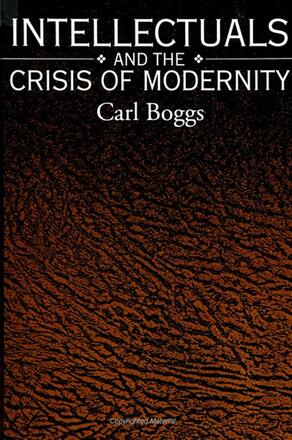
Intellectuals and the Crisis of Modernity
Alternative formats available from:
Description
This book explores the role of intellectuals in politics and social change from traditional society to the present. Its theoretical structure is based upon six distinct types of intellectual activity. The rise and decline of specific types is analyzed in the historical context of industrialization, technological change, shifting social forces, and the emergence of popular movements.
Carl Boggs is Professor of Social Sciences at National University in Los Angeles. He is the author of Gramsci's Marxism; The Politics of Eurocommunism (with David Plotke); The Impasse of European Communism; The Two Revolutions: Gramsci and the Crisis of Western Marxism; and Social Movements and Political Power.
Reviews
"This book is a page-turner on a subject that is of the greatest interest to social theorists, historians, and that broad constituency of readers who are concerned with the fate of education, political life, and above all, the intellectual level of our period.
"With a style that is amazingly lucid and inviting, Boggs has provided a basic framework for discussing one of the most disquieting problems of our times: the absorption of what was once called the intelligentsia into the modern 'scene,' notably, the academy, the corporate system, the state. He has given us the categories, trajectory over history, the social problems, and the major changes that have emerged since the end of the Second World War that vitiate the formation of 'organic intellectuals' and the prospects that may emerge that would foster their restoration. This is a book that is much needed, today, and that should invite considerable discussion. " — Murray Bookchin, Institute for Social Ecology
"Carl Boggs's book is an excellent rethinking of the problematic of the role of intellectuals in the modern world in the light of developments of contemporary capitalist societies and the collapse of Soviet communism. Boggs has mastered a wide range of literature and provides a new account of the role of intellectuals in the modern world. The book is extremely well written and organized, the scholarship is comprehensive and penetrating, and Boggs's analyses are clear and innovative. Boggs's writing style is extremely fluid, and his book should be accessible to a wide readership. " — Douglas Kellner, University of Texas at Austin